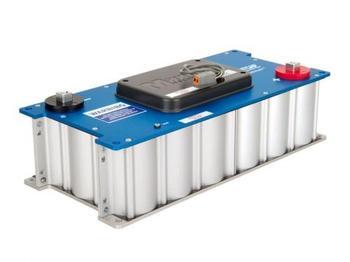 Recently, researchers at the Henry Samueli School of Engineering and Applied Science at the University of California, Los Angeles, have successfully developed a new supercapacitor material and demonstrated that it can quickly store and release energy. It is expected to be widely used in urban power grids. Energy transfer systems such as regenerative braking systems for hybrid vehicles.
Recently, researchers at the Henry Samueli School of Engineering and Applied Science at the University of California, Los Angeles, have successfully developed a new supercapacitor material and demonstrated that it can quickly store and release energy. It is expected to be widely used in urban power grids. Energy transfer systems such as regenerative braking systems for hybrid vehicles. The research team led by Bruce Dunn, a professor of materials science and engineering, has synthesized a kind of yttrium oxide and proved that it has a stable energy storage capacity. This new material will be used in "super capacitors." The super capacitor is a device that combines the high energy storage capacity of a lithium ion battery and the fast energy transfer of an ordinary capacitor.
The main author of the paper, Veronika Augustine, a graduate student of Donne, said: “Our latest research is blurring the line between batteries and supercapacitors. The latest discovery is a good dismissal of the inadequacies of capacitors and batteries.†Batteries can store energy efficiently but do not deliver energy very well, because charge carriers (ions) move slowly when they pass through the solid battery material; the storage capacity of the capacitor is generally lower.
Scientists said that the latest technology is expected to enable the device to be fully charged. These devices can be widely used in everything from mobile electronics to industrial equipment. For example, an energy harvesting system using a super capacitor can provide energy to a loading crane on the port, reducing the use of hydrocarbon fuels such as diesel.
Donne emphasized that despite the crucial first step in making electrodes with this material, in order to obtain practical equipment with high energy density that can be fully charged in one minute, in the future, we must go beyond the nanoscale or beyond. A breakthrough in the field of engineering at the nanoscale.
A new rule from the Drug Enforcement Administration (DEA) threatens to upend the American hemp industry, and could even result in criminal prosecutions for manufacturers of CBD and delta-8 THC products.
The DEA says the [interim final rule," issued Aug. 20, is simply a matter of adjusting its own regulations to account for changes to the Controlled Substances Act that were mandated by the 2018 Farm Bill (or Agricultural Improvement Act) that legalized hemp and CBD production. The new rule [merely conforms DEA`s regulations to the statutory amendments to the CSA that have already taken effect," says the agency. The new rule doesn`t break any ground, according to the DEA.
But many experts on cannabis and hemp law say the DEA rule creates a potential pathway the law enforcement agency could use to prosecute hemp processors and producers of CBD (cannabidiol) and delta-8 THC (or Δ8THC) products. There are two issues: partially processed CBD, and [synthetically derived" delta-8 THC.
Cbd Pod System Oem,Cbd Vape Pod Oem,Best Cbd Pod System,Cbd Pod System
Shenzhen MASON VAP Technology Co., Ltd. , https://www.disposablevapepenfactory.com
